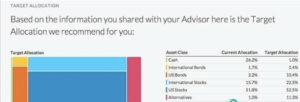In this post I want to talk about how to retire rich with a 9-5 job! Most people don’t want to settle for “regular jobs”. Many grow up wanting to become a doctor, a lawyer, a famous musician – anything that they believe will guarantee a life of wealth and happiness. This logic sounds reasonable on the surface, but diving deeper the reasoning starts to dissolve as you realize that job titles really don’t matter in the grand scheme of things.
Let’s say, for example, you do become a high-paying doctor and you even run your own practice, but you’re bad at managing your finances. You’re making on average, $100-200 per hour, but you’re shelling out thousands of dollars in fees related to your practice and office space. You’re also working on paying back student loans, car insurance, house payments, credit cards, and indulging in your favorite pastimes like shopping, eating out, and traveling. If this is you, you’re probably not rolling in cash.
Where you end up financially depends on you. If you have a goal for your life (and your money) you’re less likely to spend that spare pocket change. With a bit of luck, anyone can get rich – but not everyone can stay rich. The problem? Temptation. It’s always there and how you handle it determines whether your wallet gets thicker or thinner.
So, How Do You Retire Rich?
In this article, we’ll talk about a few simple ways to retire rich with a 9-5. Before you begin – PLEASE make sure to start tracking your net worth. Use Personal Capital to track your net worth and debt online. It is free to sign up and it automatically updates your account balances. The great thing about checking your net worth is you can start adjusting your strategy to reach your financial goals by gauging how far you are from your objectives. Personal Capital even gives recommendations for how you should allocate your spending. As you start seeing your net worth increase, it’ll add motivation to save and increase your income.
Personal Capital will analyze your current asset allocation and recommend you a new target for each area in your portfolio.
Sign up with Personal Capital here.
How To Retire Rich With A 9-5 Job (10 Ways)
1. Save.
Managing the income you’re used to receiving isn’t as hard as handling EXTRA money you may receive (a raise at work, a lucky lottery ticket, inheritance etc). The minute we fall into extra cash we tend to see all of the things we want, but not necessarily the things we need. Many of us think of spending our extra cash as a reward for hard work. However, what we’re really doing is putting more financial pressure on ourselves.
Although it seems obvious, the best way to handle this extra cash is by saving and investing it. Saving money for a rainy day or for retirement is a much better solution than upgrading your smart TV to a larger model, even if it seems less exciting.
Though you might not be putting much away, stashing a bit of extra cash away each time you get it will add up quickly. If putting away money isn’t your strong suit or if temptation tends to win you over, automatically set your bank account to have money sent straight to savings, or get a trusted friend of loved one to hold onto your cash.
2. Set up a Retirement Account (e.g. 401(k) / IRA / Roth IRA).
The Government incentives people to put their money in a retirement account by giving them enormous tax advantages. As of 2019, you can invest up to $6,000 or $7,000 if you’re age 50 or older for an IRA account, and up to $19,000 or $25,000 if you’re 50 or older for a 401(k). The tax is deferred upfront, meaning you don’t pay taxes on the income the year you earned it.
For example, if you made $50,000 in the year and you put $6,000 of it in your Traditional IRA, you are only taxed on $44,000 of the $50,000. The money in your traditional IRA grows tax deferred (for example if you use it to invest stocks). However, when you withdraw the money from your IRA account, you need to pay taxes on what you withdraw at your taxable rate.
The Roth version of these accounts allows you to invest ‘Post-tax’ money. Unlike the traditional version, you put in money that you already paid taxes on. The money also grows tax-free (you can buy/sell in the account without paying capital gains taxes) and when you withdraw the money (after 59.5 years of age) the entire balance is tax-free as well. That’s why a lot of wealthy people prefer this option.
Also to note, if you withdraw funds before 59.5 years of age, you incur a 10% early withdrawal penalty on your accounts.
3. Invest in a Property.
Investment properties are a great way to build a strong equity while the tenant in your home pays the mortgage. This being said, being one’s landlord is no easy feat. You’re still responsible for the house’s general upkeep and maintenance, despite not living in the home. However, because the insurance, property taxes, mortgage interest, maintenance and upgrade costs, utility bills are all tax-deductible, this is an awesome set up for those with the cash to afford the down payment.
4. Buy Cheaper Items.
Living within your means is a smart idea, and, in many ways, a best practice. But what if you could go further?
Consider living below your means. Buy things that cost even less than what you would comfortably afford. Consider buying the cheaper car, getting the second hand DVD player, or buying the plastic garbage can instead of the expensive stainless steel one. This practice applies to everything from large appliances to everyday items such as shoes and small appliances.
5. Only Buy What You Need.
This point goes off on the minimalism point. With the heavy presence of consumerism, we often find ourselves confusing our needs and wants. Many of us, whether we realize it or not, actually feel as if the two are the same thing, but they aren’t. Not technically.
A need, by technical terms, is something that human beings need to survive such as clothing, food, and shelter. A want, on the other hand, is something that you could do without, but would be much happier to have than not have.
Things get murky when wants become needs. For example, if you work as a freelance writer or designer, you need a computer (something that is technically a want) in order to do your work and earn an income (a need).
So, when browsing a store, keep in mind the things you want versus the things you actually need. Do you really need a new curling iron or is the one you have at home bulky and old, but still in working order? To be on the safe side, you need to identify your needs and wants. Put all your items together and determine those that you need and those you don’t.
Once you’ve decided on your wants and needs, consider selling the extra things that you have acquired but don’t use and, when purchasing new things, evaluate if they are wants or needs. Live minimally with less shoes, less clothes, less drinkware and dinnerware, and less furniture. You don’t need all those things!
If you’re still unsure, use the 30-day rule when purchasing new items and wait 30 days before buying it. During this period, consider its value to your life. If after 30 days you still want it, go ahead and buy it. But if the urge has gone, leave it on the shelf!
6. Be Frugal.
Frugality has gotten a bad reputation due to reality TV shows and their extreme portrayal. However, being frugal doesn’t have to mean being “cheap”. A few easy ways to be frugal without sacrificing quality of life or happiness include:
- Seek and discounts and coupons whenever possible
- Eat out less often (once a week instead of two, for example)
- Downsize
- Consider switching to video streaming services and getting rid of your cable subscription instead of having both
- Cut the gasoline bill in half by using public transit, bikes, and walking to get around
- Eliminate unnecessary recurring bills like gym memberships that don’t get used and subscriptions for magazines that never leave the package
7. Downgrade.
In order to save some extra cash, consider downgrading. If you live in a big home, consider switching to a small dwelling. A smaller home, is a beneficial way to downgrade. It can mean paying a lower mortgage and fewer taxes. It can also mean that your home receives less weather or property damage, and that utilities are cheaper.
8. Start a Side Job.
Regardless of how much you reign in your spending, there’s going to be a limit to how much you can save as your income likely isn’t infinite. You can expand your regular income by participating in a side job. A few great ideas include:
- Becoming a driver for services like Lyft, Uber, and SkiptheDishes
- Tutor in your area of expertise
- Rent your extra space out using AirBnB
- Get a freelance job going (writing, editing, designing etc)
- Start an online shop through Etsy, Fiverr, or similar websites
- Offer lessons
- Take surveys for cash
- Baby, house, or pet sit
What are some good places to start as a freelancer?
Where can I take surveys for cash?
- Swagbucks
- $5 Signup Bonus
- SurveyJunkie
- Vindale Research – Get rewarded to give your opinions on products and services
- $2 Signup Bonus
- InboxDollars–Pays people to read e-mails, take surveys online,
plays games, and you get $5 just for joining.
- $5 Signup Bonus
Make a list of your talents and passions. Use these lists to brainstorm a list of possible side jobs. If you can’t find anything that we mentioned above, don’t fret – even working minimum wage as a dishwasher, hostess, or at a fast food establishment is better than nothing.
To do the math, earning an extra $12 an hour but working 10 hours a week can still earn you over $6,000 a year before tax.
9. Chat with a financial advisor.
Most of us benefit or would benefit from chatting with a financial advisor. However, there’s a stigma that asking for help is weak. This is mostly due to the unpleasant feelings that often comes with the task. For example, feeling intimidated or ashamed.
So, don’t be scared to speak with an advisor. They’re there to help you! If you aren’t sure, find one who comes highly recommended by friends and family. You can also opt to find an advisor who isn’t compensated by what he or she manages to sell you, if you’re worried about being taken advantage of.
Using a financial advisor can help you make plans and manage your money effectively, but they can also help you avoid making large financial mistakes.
10. Relocate or House Hack
Relocating is a great way to save cash each month. Different locations come with different costs of living, and moving can mean paying less on bills, shelling out less for property damage or protection, and paying less to get to and from your place of employment and/or school.
Cost of living varies by city, state, province, territory, country, and continent. Sometimes, though, it can even vary by areas of cities.
Another way to reduce living costs is to house hack by getting roommates that pay you rent. You can even renovate a house and add an extra room so that you can acquire more tenants paying you monthly payments.
Benefits of Working A 9-5
This site is all about building alternative income sources and passive income businesses. Despite the overwhelming community-based sense of unhappiness that comes with the idea of making a living from a 9-5, working the classic 9-5 grind doesn’t have to be a bad thing. It depends how you look at it, really. There are still benefits to working a 9-5 and it doesn’t have to be black and white which path you choose (full-time job vs. passive income) !
On one hand, you can look at it as if you’re a prisoner, stuck doing the same thing day in and day out without making the salary that you’d like. Or, you can look at it for its good points which can include the following.
A guaranteed income.
Providing that you aren’t suddenly fired, laid off, or fall ill, if you’re employed in a 9-5 position, you’ll always have a guaranteed source of income. This is an awesome benefit and one that most 9-5 workers can agree on – whether they enjoy the daily grind or not.
Efficiency.
After a few hours of doing the same task, we, as humans, tend to start tapping out mentally. Our focus begins to falter, our attention spans get shorter, and our efficiency drops significantly. This is why working a 9-5 and having a set “stop time” is beneficial; it means that we work through the parts of the day where we are the most efficient, stopping at a specified time for a much needed wind down that essentially recharges us for the next day.
A social life.
Working a 9-5 means that after work you have the rest of the night to relax. This time can be spent out and about on the town, at home with friends and family, or alone unwinding with a good book and a can of beer. Regardless of how you spend the free time, it’s nice to know that at the end of the day, you have some free time to do whatever you want.
Conclusion
Though this post talks about how to retire rich with a 9-5, it applies to entrepreneurs as well. To retire rich, you essentially need to save, invest, and acquire multiple income streams. We hope this article was helpful and let us know if you have other advice in the comments below!






